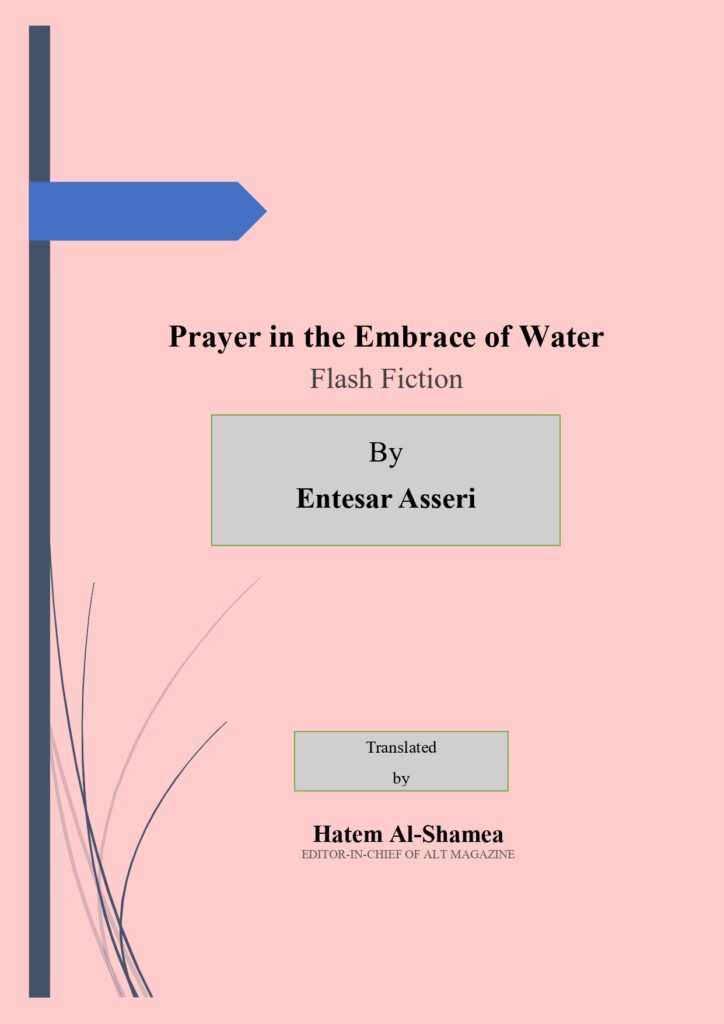Introduction
Wajdi Al-Ahdal’s short story “Hitler Goes to Paradise” is a postmodern work that employs surrealism and metafiction to critique power structures and question perceptions of reality. Through absurdist symbolism and intertextuality, Al-Ahdal subverts expectations of paradise while examining political leadership, religion, and humanity’s fleeting control over destiny. This paper will analyze the story’s unconventional narrative, characterization of Hitler, use of subtext and allegory, and exploration of paradise as a conceptual lens to reveal deeper sociocultural themes. Close readings will be supported using postmodern literary theories of Bakhtin, Foucault, McHale, and Hutcheon to interpret how Al-Ahdal’s experimental style deconstructs ideologies and invites reimagining social paradigms.
Narrative Frame and Metanarrative Commentary
Al-Ahdal crafts an intentionally “bizarre” surreal narrative frame that challenges linear expectations (p. 1). Hitler’s abnormal experience in heaven serves as a metacommentary on paradise as a fulfillment utopia. Paradisal tropes like infinite provision and lack of responsibilities are subverted by Hitler’s dissatisfaction lacking “furniture…radios and newspapers” usually constituting paradise in Abrahamic traditions (p. 8).
This lends a postmodern recursive quality disrupting totalizing narratives, as described by McHale who argues postmodern fiction tends to “reflect upon its own narrative apparatus” (p. 13). By framing paradise as an unsatisfactory environment, Al-Ahdal implies meaning is not predetermined but shaped by individual perceptions in dynamically interactive, non-utopian systems. His non-didactic style invites multiple interpretations beyond intended messages.
Perspective and Power Dynamics
Hitler’s singular subjective perspective anchors the narrative in an inherently unreliable lens prone to ideological biases and madness undiscovered until the end. Hutcheon notes postmodern texts often depict “constituted subject[s]” shaped by discourse rather than fixed essences (p. 27). Hitler’s corrupted perception reflects how power structures form subjectivities through domination of thought paradigms, an idea explored by Foucault.
Interestingly, Hitler perceives himself as a messianic figure of purity tasked with disciplining others yet remains blind to his corruption by power’s nature until death comes again. His narcissistic characterization mocks the idea any mentality holds privilege over “truth” and reveals humanity’s persistent tendency to cloak egos ingrandiose identities, as discussed by Bakhtin who saw the self as a site of unfinalizability shaped by discourse (p. 31).
The overt political symbolism framing Hitler in this role while depicting corresponding abuses of power in paradise forms a subversive metanarrative bridging surrealism with critique of fascist regimes that fool masses into complicity through brutal self-affirmation rather than compassionate leadership. Through Hitler as medium, Al-Ahdal urges recognition that self-proclaimed authority often disguises manipulation rather than benevolence.
Queering Gender and Religion
In another postmodern move pioneering discussion, Al-Ahdal queers expected paradisal conceptions in his depiction of Eve. Her multi-colored eyes unsettle biblical familiarity while conveying a liminal “otherness” outside preconceptions (p. 2). Her fluid identity challenges assumptions about perceived norms like religious tradition’s view of women or conserved perception of good/evil.
Obviously, Al-Ahdal positions Hitler as an outsider, or “Other,” in paradise. His nakedness emphasizes his lack of belonging, while Eve’s comfortable familiarity with the space highlights Hitler’s discomfort (p. 1). More profoundly, Al-Ahdal subverts religious authority by portraying key figures like Eve, traditionally passive and submissive, as actively guiding a confused Hitler. Even God himself is reduced to an obscure “King” who takes a backseat, contrary to monotheistic traditions that center divinity (p. 2). By minimizing religious authority figures and emphasizing Hitler’s ignorance, Al-Ahdal decentralizes power and undermines assumptions about control and belonging in the afterlife.
To extend my argument, Eve’s constant withdrawal from Hitler’s desire for possession represents paradise as unafraid to reject attempted dominance and asserts individual autonomy and consent. Her manifest temptation accompanied by mysterious seductiveness and wisdom figure subverts Abrahamic relegation of woman solely to man’s servitude or sin. Al-Ahdal remixes religious tropes to envision full mutual respect and multidimensionality absent hierarchies inegalitarian ideologies impose. Most profoundly, Al-Ahdal dismantles colonial power structures through his portrayal of gender roles. Eve emerges as a strong, guiding presence completely in control of Hitler sexually, psychologically and situationally (p. 1). By relegating Hitler to a state of uncomfortable dependency on Eve, Al-Ahdal symbolically castrates and disempowers the fascist leader who once terrorized millions. Read through this lens, Hitler’s paranoid preoccupation with controlling paradise through militant expansionism rings hollow (p. 3). Ultimately, Al-Ahdal illustrates how fascism and colonial oppression are unsustainable even after death, stripped of the systems that once propped them up.
By queer-coding Eve and crafting heaven’s androgynous “uniformity,” Al-Ahdal creatively critiques societal prejudices while recasting theology’s tended tendency to oversimplify for control (p. 5). His postmodern treatment implies diversity and fluidity as heavenlier forces while pushing religious revisionism. This aligns with Dennis Altman’s view that postmodern queer discourse seeks “liberation from any singular or essentialist idea of human sexuality or gender” to embrace pluralism (p. 41).
Political and Religious Allegory
Beyond queering paradise, Al-Ahdal further unpacks heaven’s surroundings as symbolic critiques of established political and religious orders typically claimed by power brokers as humanity’s custodians yet reproducing inequality. The “tubular” skyscrapers resemble phallic symbols of forced social regimentation (p. 5).
The palace’s “mosaic scenes” containing embedded symbols unexplained yet denoting arrogance likely represent how dominant discourses obscure truths underneath glossy self-mythologizing for control (p. 6). Their internally contradictory “human-animal” hybrids probably signify humanity’s shared qualities with other species suppressed by ideologies claiming one vision as singularly truthful. Elements like the eccentric palace made of voice-activated emeralds emphasize the bizarre, illogical nature of Hitler’s circumstances (p. 2). Through magical realism, Al-Ahdal overturns expectations of order, reason and knowledge—traits long associated with colonial dominance—and positions Hitler as laughably out of touch instead.
The “Tree of Immortality” holds futuristic connotations of technology yet signifies hopes religions present for gratification once imbued with meaning through theological interpretation serving particular aims. Al-Ahdal implies human capacity for self-determination if detach dang paradigms conditioning thought through interdependence instead of top-down leadership models. Through surrealist allegory he calls for multifaceted dialogism over singular authority celebrated by totalitarian dimensions of politics and organized religion inherently prone to oppression.
Dissolution of Self and Rebirth of Consciousness
Hitler’s death represents final dissolution of the limited ego shaped by the ideologies and systems Ahdal critiques through his narrative. His madness and removal from narrative agency parallels Freud’s idea that the ego eventually crumbles under the weight of repressing its instincts for socialization at civilization’s behest (p. 48).
Yet Al-Ahdal’s postscript offers redemptive hope in eternal return and re-creating meaning, reflecting Eliade’s notion that “religious man seeks…to integrate himself into Reality” steadily rediscovering purpose (p. 50). The drama’s reoccurrence with prospect of ongoing evolution echoes Jungian collect unconscious’ capacity for growth through reintegrating denied aspects into sanctified understanding able to remake existence meaningfully without forcing consensus. Al-Ahdal’s transgressive, pluralistic style calls readers consider paradise not a rigid teleology but actively (re)constructed dialogue.
Conclusion
Using Hitler’s dubiously paradisal experience as surrealist medium, Al-Ahdal’s “Hitler Goes to Paradise” presents a postmodern work subverting generic expectations to explore issues like power abuse, fluidity of the self, and reimaging the role of religion through intertexuality, symbolism, and metafictional devices. His experimental style critiques oppression while inviting mankind’s creative rethinking of social interactions for continual progress crafting freer, more compassionate modes of existence defying singular authority’s stifling of consciousness. Through anti-foundationalist absurdism, Al-Ahdal reminds humanity holds power over determining its destiny through open-minded cooperation untethered from ideological absolutism posing as predetermined truth.
Al-Ahdal’s “Hitler Goes to Paradise” achieves profound political and socio-cultural commentary through absurd, subversive and linguistically creative means. By positioning Hitler as confused, ignorant and dependent after death, Al-Ahdal systematically dismantles both religious and colonial power constructs. In doing so, he privileges new subject positions normally marginalized or objectified, from Eve’s guiding femininity to paradise itself as a disorienting space ungoverned by reason. Al-Ahdal satirizes any presumed control over life, death or the afterlife, shattering authoritarianism on a profoundly absurdist level instead.
Works Cited
Altman, Dennis. “Postmodernism and Queer Theory.” In The Postmodern Reader, edited by Charles Jencks, 41–47. London: Academic, 1992.
Al-Ahdal, Wajdi. “Hitler Goes to Paradise.” Translated by Hatem Al-Shamea. Arab Literature & Translation Magazine & Press. (2023): 1-9.
Bakhtin, Mikhail. The Dialogic Imagination: Four Essays. Edited by Michael Holquist. Translated by Caryl Emerson and Michael Holquist. Austin: University of Texas Press, 1981.
Eliade, Mircea. The Quest: History and Meaning in Religion. Chicago: University of Chicago Press, 1969.
Foucault, Michel. The History of Sexuality: An Introduction. Translated by Robert Hurley. New York: Vintage, 1990.
Freud, Sigmund. Civilization and Its Discontents. Translated by James Strachey. New York: W.W. Norton & Company, 1961.
Hutcheon, Linda. The Politics of Postmodernism. London: Routledge, 1989.
Jung, Carl. The Archetypes and the Collective Unconscious. Translated by R.F.C. Hull. Princeton: Princeton University Press, 1990.
McHale, Brian. Postmodernist Fiction. London: Routledge, 1987.



